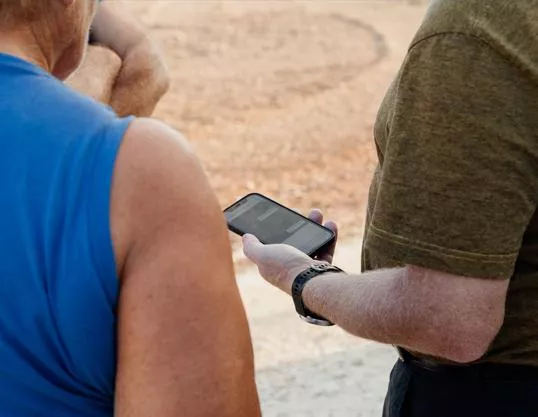Inspirational idea: Smart circular farming in Malta
- Innovation, knowledge exchange & EIP-AGRI
- Agricultural Productivity
- Research & Innovation
- Sustainability
Three cooperatives in Malta have teamed up to recycle nutrients in manure from animal breeding and use them as fertiliser in the fruit and vegetable sector. “We will even go beyond this to achieve a full circular economy, making full use of the resources in raw pig and cow slurry.”

This inspirational idea is also available in a Slovak version. Translation courtesy of the National Rural Network Slovakia. Read more EIP-AGRI inspirational ideas in Slovak on the NRN website.
The Farmers Central Cooperative Society (FCCS) has teamed up with the pig breeders cooperative (KIM) and the milk producers cooperative (KPH) to work on working on a new project to recycle the nutrients in manure from animal breeding and use them as fertiliser in the fruit and vegetable sector. “We will even go beyond this to achieve a full circular economy, making full use of the resources in raw pig and cow slurry. On top of fertiliser: water, energy and carbon as soil improver, biochar, or fuel,” Christopher Ciantar, project coordinator tells us.
According to the project, 300,000 tons of slurry is discarded in Malta every year. There are currently very few solutions for dairy and pig producers, and so it is wasted. At the same time, fruit and vegetable farmers are paying high prices for fertilisers. Furthermore, as droughts become more and more common in this Mediterranean country, water is becoming more and more sought-after. The SYNECO project is working on a circular solution which could tie all of this together, however in order to achieve this, the different parties must work together.
Christopher, who works for FCCS explains “Collaboration between farmers in Malta is very limited, there are just not many opportunities for this. So along with the other cooperatives, we believe that bridging this gap and encouraging more connections and synergies across sectors can have many benefits, not only for the farmers themselves and their livelihoods, but also for the environment.”
The idea is that when several farms are in close proximity, a small biogas facility will be installed on site. As well as producing energy, the remaining substance – the digestate – can also be put to good use. Once processed, the digestate will be treated further (on-farm) using a mobile technology that is concurrently being developed through the project. This device can move from one farm to another. It is able to recover 80% as clean water which can be added to the reservoirs on the farm, and the rest as solid and liquid fertiliser which can be used directly on-farm, or sold to other producers. On smaller, individual farms the mobile technology, without a biogas plant, can still be used to separate the slurry into water and nutrients (without the energy element).
A pilot of both the biogas and the mobile plant is currently being built as a showcase. It will be up and running by end of March 2023 when the partners will begin field analyses to prove the concept. Christopher explains “We already had a lab-scale facility in 2018, where we recovered water and nutrients, but in this project we have upscaled. We have to ensure the technology is efficient and is able to handle the higher volumes of slurry. We also need to make it cost-effective for the farmers; targeting a solution that makes good manure management, fertilisation with manure and recovery of other by-products, a preferred solution for Maltese farmers.”
The second part of the project is the application of the fertiliser. Farmers need training and support. So the project has developed an app called the “Crop Manager app” which is capable of producing a fertiliser plan. These plans are based on fertiliser and soil analyses and input by the farmer with regards to what his/her intentions are for next season and what crop he/she wants to produce. The app will also inform the farmer if there is a ‘cheaper fertiliser option’ on the market. Moreover, all fruit and vegetable farmers using the organic fertilisers will get a certificate which they can use in the cooperative for marketing purposes.
Christopher adds “As part of the project, we are also working on a calibrated economic model to quantify the total financial, social and environmental costs and benefits over a number of years and compare these impacts to the current situation under different scenarios.”
Christopher is currently working closely with FCCS members to trial the organic fertilisation in practice. Through the showcases, demonstrations and open days, the project hopes to convince more farmers as the project produces results and progresses.
SYNECO, which is financed by the European Union (Rural Development Programme for Malta 2014-2020), helps livestock farms to turn manure from being a complicated and costly waste into being a valuable plant nutrient, reducing the need for storage and transport and so reducing emissions and eliminating odours and noise. The fact that the technology is partially mobile also means that planning permission is also avoided.
The partnership intends to work along with the legislation, as the whole island of Malta is a nitrates vulnerable zone. Therefore, the application of nutrients originating from manure will have to be carefully controlled, planned and monitored, so as to respect the Nitrates Directive.
“SYNECO makes the farmer a protagonist to help shape the future agricultural economic model, taking on the challenge of climate and environmental issues more forcefully and directly” concludes Christopher.
Contact
Christopher Ciantar chris.syneco@outlook.com
Photos:
SYNECO.